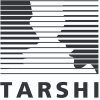The Applied Study Programme focused on the practical implications of working on issues of sexuality using a rights affirming approach. The principal aim was to expose participants to a variety of rights-based strategies used by organisations that work on sexuality. As a result of this program, we hoped participants would build their capacity as activists, advocates, and practitioners, to further develop and improve upon the work they were doing and share country-level experiences and strategies across the region. The Applied Study Programme was a reincarnation of the Visiting Scholars/Practitioners Programme in which individual scholars/practitioners were selected from China, Indonesia, Thailand, the Philippines and Vietnam to visit India for a month to carry out research on sexuality issues.
The Applied Study Programme organised by The South and Southeast Asia Resource Centre on Sexuality was conducted in Surabaya, Indonesia in collaboration with The GAYa NUSANTARA Foundation from Aug 23 – Sep 19, 2006. In 2006, the focus was on issues of Sexual Diversity, primarily on issues of men who have sex with men (MSM) and on transgender issues.
The programme brought together participants from Bangladesh, Cambodia, India, Myanmar and the Philippines. The participants had varying degrees of prior experience in work on male-to male-sexuality, rights and health.
Participants
Bayzid – 39 years-old, self-identifying as male – Executive Director of Organization of Development Programme for the Underprivileged, Bangladesh
Agniva Lahiri – 26 years-old, self-identifying as transgender (kothi) – Executive Director of People Like Us (PLUS) Calcutta, India
Michael P. De Guzman – 32 years-old, self-identifying as male – Freelance consultant working on HIV/AIDS and MSM issues in Cambodia
Minn Thu – 31 years-old, self-identifying as male – National Officer(Monitoring and Evaluation), Fund for HIV/AIDS in Myanmar (FHAM), UNAIDS – Myanmar
Germaine Trittle Leonin – 36 years-old, self-identifying as female and lesbian – Government Officer, Policy and Legal Research Coordinator and member of the Rainbow Right Project – Philippines
Typically, on a day-to-day basis, participants attended regular seminars and discussion groups. Seminars were oriented around readings on sexuality theory, sexual rights and same-sex sexualities in Asia (including a specific focus on same-sex sexualities in Indonesia). Teaching was primarily undertaken by Dede Oetomo of GAYa NUSANTARA and Radhika Chandiramani.of the South and Southeast Asia Resource Centre on Sexuality. Dede Oetomo functioned as the Mentor through the whole course.
The participants’ learning experience was enhanced by linking each participant with a ‘partner’ from amongst the GAYa NUSANTARA team of staff and volunteers: Danny, Erik(a), Melly, Miky and Verra. These partners facilitated the planning and scheduling of participants’ day-to-day activities, in terms of arranging field-visits and other practical matters such as building friendships and social networks within relevant communities, providing for interpretation, and explaining local cultural nuances. Local partners also attended the seminars and discussion groups to build their own conceptual skills.
The program also comprised a range of applied activities, mostly in and around Surabaya. Principal amongst these were:
- Visits to various ‘sex-sites’ in Surabaya – including cruising areas and bars frequented by MSM and waria (and to a lesser extent, women who have sex with women)
- Interviews scheduled for each participant, and telecast on a local English radio station
- Visits to local services and NGOs, such as the HIV and AIDS ward at the local hospital and a community-based support project for sex-workers
- A three-day visit to the Bali Queer Film Festival (6-9 Sep) where meetings with film directors were arranged
- Sexual Diversity in Asian Society – an open forum hosted at Surabaya University at which each participant spoke about sexual diversity and culture in their own country
Other than scheduled program activities, participants were supported in organizing their own meetings and visits, the aim being that they should develop a tailor-made program suited to their own interests and professional needs, and for establishing their links with relevant local organizations and individuals.
Drawing on their experiences and lessons learned during the program, each of the participants produced two key pieces of individual work at the end.
The Program offered a stimulating course of study and applied activities that all participants found useful. Each participant was able to cite specific achievements and lessons that they would take forward in their work.

